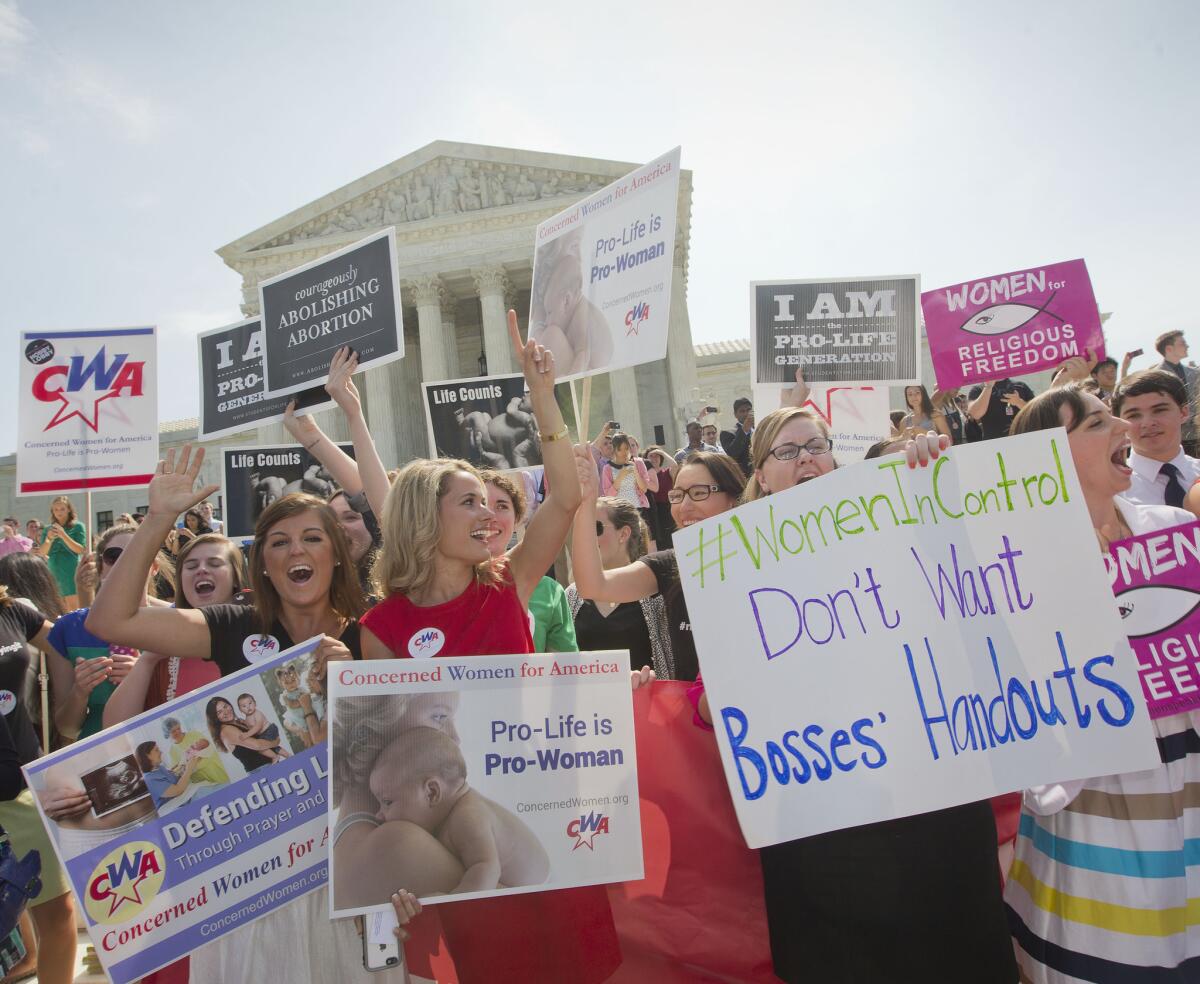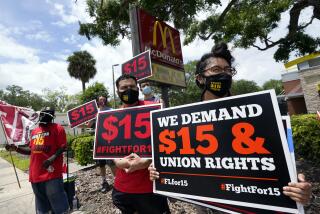Opinion: Post-Hobby Lobby, Congress should cut health insurance’s ties to work

- Share via
By ruling that private corporations can shape their employee insurance plans to fit their religious beliefs, the Supreme Court has given Congress another reason to take a step it refused to take in 2010: decouple insurance benefits from employment.
The 2010 Patient Protection and Affordable Care Act, better known as Obamacare, requires new health insurance policies to include coverage for federally recommended preventive services with no deductibles or copays. The Obama administration issued rules in 2011 that mandated coverage of various types of birth control for women, exempting churches and other religious institutions but not private employers.
The problem for the administration is that many business owners, particularly those in closely held ventures, believe that they’re the ones paying for their employees’ health insurance. They choose which plans to make available, they cover a portion of the cost. And because of that role, they take offense at mandates that conflict with their personal religious views.
I’ve argued before that the premium contributions made by employers are coming out of the wages that they’d otherwise pay, so workers really are covering the full cost of their policies. Sure, companies offer health benefits for competitive reasons, but they funnel part of their workers’ compensation into health insurance mainly because of the tax break associated with it. When employers are the ones supplying the plan, workers don’t have to pay taxes on the income spent on premiums.
Predictably, the justices, like the families that own Hobby Lobby and Conestoga Wood Specialties, did not look at the economics of health insurance that way. From their point of view, the two employers must have been paying for their workers’ coverage -- and the contraceptive methods they did not support -- because they were writing checks to the insurers.
Congress could dispel this accounting fiction and give individuals unfettered choice over their coverage by shifting the tax break from employer-sponsored plans fully to individuals’ premiums. Under current law, an employee buying insurance individually instead of through a company-sponsored plan can only deduct premiums and other healthcare costs that exceed 10% of their annual income. Shifting the tax preference from companies to their workers would leave employers with considerably less incentive to pay (ever-dwindling) health benefits instead of higher wages.
One of the arguments for having employers provide insurance was that it created risk pools, spreading individuals’ medical costs over a larger group. That sort of pooling is a good thing, but it’s no longer necessary. The state insurance exchanges created by Obamacare perform that function, and do so on a larger scale.
Granted, making the shift away from company-sponsored plans would enrich the employers that dropped benefits without increasing workers’ pay by an equivalent amount. But that kind of tactic would be discouraged by competitive forces in the labor market, and could be addressed directly through legislation. For example, in their 2009 Healthy Americans Act proposal, Sen. Ron Wyden (D-Ore.) and then-Sen. Robert F. Bennett (R-Utah) sought to use tax penalties to force employers to transfer all the dollars they were spending on health benefits into workers’ salaries.
A bigger hurdle, though, is the fact that the owners of Hobby Lobby and Conestoga Wood Specialties are hardly the only ones who believe that employers, not employees, pay for health insurance. In particular, many workers and Democratic policymakers are committed to requiring employers to provide insurance because they view it as a way to make companies pay their share of healthcare costs. That’s why Obamacare imposed tax penalties on any company with more than 49 full-time workers that did not provide comprehensive insurance coverage.
But the administration has repeatedly delayed the mandate, reflecting how hard it is to reconcile that vision of employer-sponsored health insurance with the economic realities. The fact is, the government can’t magically produce insurance benefits for workers who don’t have them today. Those employers face a choice: They can try to pass on the new costs to their customers, or they can take them out of their payroll. The latter route means paying lower wages or, more likely, employing fewer people. Yes, they could also absorb the cost and try to get by with smaller profit margins, but when the average employer contribution is $1,000 for individual plans and $4,600 for family plans, how realistic is that option?
For employers with minimum- and near-minimum-wage workers that don’t offer insurance today, there’s no way to offset the cost of the mandate by paying their employees less. And that shouldn’t be an option anyway. Still, it’s not helpful to pretend that employers have an extra pocket that healthcare costs come out of. They come out of worker compensation. Too bad the Supreme Court didn’t see it that way.
Follow Healey’s intermittent Twitter feed: @jcahealey
More to Read
A cure for the common opinion
Get thought-provoking perspectives with our weekly newsletter.
You may occasionally receive promotional content from the Los Angeles Times.







